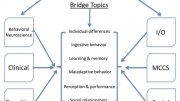What Is Cognitive Psychology?
Cognitive psychology is concerned with how people acquire, process and store information. Major areas of interest in cognitive psychology include language, attention, memory, decision-making and problem-solving. Cognitive psychology has many practical applications. For example, cognitive principles are often used in the creation of educational curriculum and software design.
What Do Cognitive Psychologists Do?
Cognitive psychologists work in a number of areas. Many cognitive psychologists conduct applied research or basic research on the human thought process. Cognitive psychologists often work at colleges and universities, government agencies, corporate businesses and in private consulting. Common careers titles include university instructor, human factors consultant, industrial-organizational manager and usability specialist.
How Much Do Cognitive Psychologists Typically Earn?
Wages and salaries for cognitive psychologists vary widely depending on degree, position and experience. According to the U.S. Department of Labor, the average salary for those working as industrial-organizational psychologists in 2010 was $114, 040, with a median annual salary of $87, 330. In a 2009 salary survey by the American Psychological Association (APA), the median salary for university faculty positions was $76, 090.
The demand for cognitive psychologists also varies. Most are employed in teaching and research positions by colleges and universities.
However, there has been significant growth in other areas such as human-computer interaction, software development and organizational psychology. In a survey of job posting that appeared in the APS Observer Employment Bulletin between 1991 and 1996, cognitive psychology positions accounted for 7.5% of the total job listings.
What Type of Degree Do Cognitive Psychologists Need?
While there are some entry-level opportunities available to graduates with a bachelor's degree, most require a master's or doctorate degree. Those working in applied areas can often find employment with a master's degree. These applied areas include human factors and industrial-organizational psychology, which are expected to grow in the future.
What are the Pros and Cons of a Career in Cognitive Psychology?
Benefits of a Career in Cognitive Psychology
- Cognitive psychologists are able to help find solutions to real world problems.
- Opportunities for self employment through consulting work.
- Diverse career paths (i.e. private sector, consulting, government, education).
- Most positions require a doctorate degree in cognitive psychology.
- Research can be tedious and may lead to burnout.
Source: psychology.about.com
You might also like:

























Cognitive psychology is the study of the human mind and mental processes; studies are usually in regards to learning, memory and problem solving. In other words, cognitive psychology can be considered a study of how the mind works with the environment, in regards to decisions and actions.
Cognitive science is not limited to the mental process but the structural cognitive matrix level & layers of the cognitive function & process that is now at its infancy & medical research level.
For more information, read:
Cognitive Psychology: A Student's Handbook By Michael W. Eysenck and Mark T. Ke…
(1) Cognitive Psychology Jobs, vacancies | Indeed.co.uk
(2) Research Assistant Cognitive Psychology Jobs, vacancies | Indeed ...
(3) Cognitive psychology research jobs - Trovit Jobs
jobs.trovit.co.uk/jobs/cognitive-psych...
(4) Postgraduate Cognitive Psychology courses UK: Postgraduate ...
› Home › Postgraduate › Cognitive Psychology
(5) VisionScience: Jobs